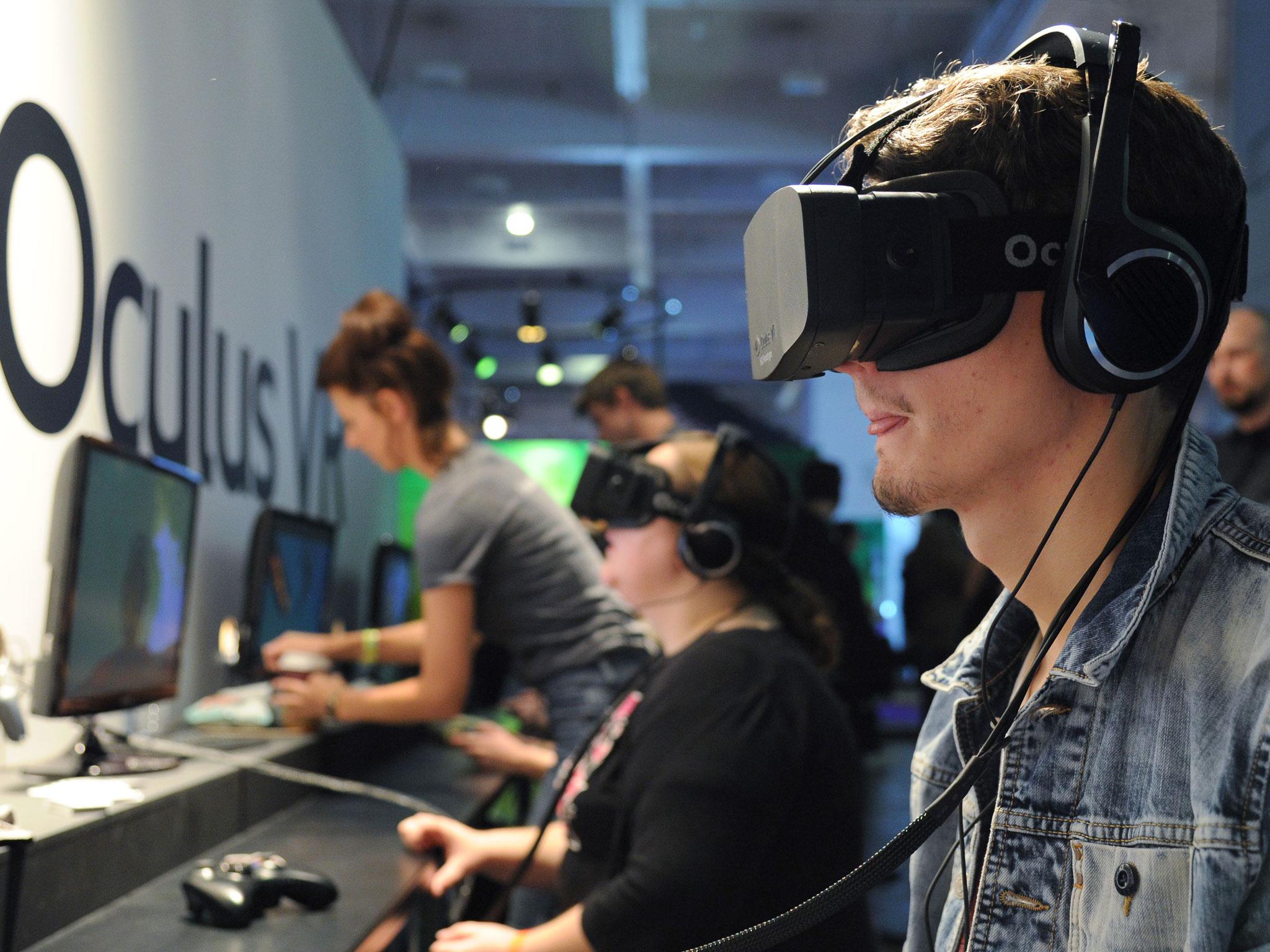Cyber sickness: Does surfing on your smartphone make you feel woozy?
Do you feel woozy after surfing the net on your smartphone? Does watching the latest Hollywood blockbuster in high-definition make you feel rubbish? You may be suffering from the increasingly common ailment known as 'cyber sickness', warns Kate Murphy

Your support helps us to tell the story
From reproductive rights to climate change to Big Tech, The Independent is on the ground when the story is developing. Whether it's investigating the financials of Elon Musk's pro-Trump PAC or producing our latest documentary, 'The A Word', which shines a light on the American women fighting for reproductive rights, we know how important it is to parse out the facts from the messaging.
At such a critical moment in US history, we need reporters on the ground. Your donation allows us to keep sending journalists to speak to both sides of the story.
The Independent is trusted by Americans across the entire political spectrum. And unlike many other quality news outlets, we choose not to lock Americans out of our reporting and analysis with paywalls. We believe quality journalism should be available to everyone, paid for by those who can afford it.
Your support makes all the difference.If you are watching computer-generated mayhem in the latest action film or scrolling rapidly on your smartphone, you may start to feel a little off. Maybe it is a dull headache, or dizziness, or creeping nausea. And no, it is not something you ate. A peculiar side effect of the 21st century is something called digital motion sickness or cybersickness. Increasingly common, according to medical and media experts, it causes a person to feel woozy, as if on a boat on a churning sea, from viewing moving digital content.
"It is a fundamental problem that has kind of been swept under the carpet in the tech industry," says Cyriel Diels, a cognitive psychologist and human factors researcher at Coventry University's Centre for Mobility and Transport. "It is a natural response to an unnatural environment."
Digital motion sickness, known in the medical profession as visually induced motion sickness, stems from a basic mismatch between sensory inputs, says Steven Rauch, medical director of the Massachusetts Eye and Ear Balance and Vestibular Center and professor of otolaryngology at Harvard Medical School. "Your sense of balance is different than other senses in that it has lots of inputs," he says. "When those inputs don't agree, that's when you feel dizziness and nausea."
In traditional motion sickness, the mismatch occurs because you feel movement in your muscles and joints, as well as in the intricate coils of your inner ear, but you do not see it. That is why getting up on the deck of a ship and looking at the horizon helps you to feel better. But with digital motion sickness, it is the opposite. You see movement – such as the turns and twists shown in a movie or a car chase in a video game – that you do not feel. The result is the same: you may suffer a sensory conflict that can make you feel queasy.
It can happen to anyone, even if you are someone who is not prone to motion sickness in cars, boats or aeroplanes. Various studies indicate that it can affect 50 to 80 per cent of people, depending on the fidelity of the digital content and how it is presented.
Studies show that women are more susceptible to the condition than men, as are those with a history of migraines or concussion. Researchers say that, anecdotally, people with traits associated with the "Type A" personality – such as perfectionism or ambition – also seem to be more vulnerable. Nobody knows exactly why this might be, but one theory is that people with these traits may also have a tendency to be more alert and reactive to sensory inputs, similar to people who get migraines.
Often symptoms are subtle. As a result, many people with digital motion sickness do not quite know what is causing their discomfort, typically chalking it up to stress, stomach upset, eye strain or vertigo. None of this is news to the military, which has long known about the sickness that even seasoned pilots can feel in flight simulators. And the problem has only worsened as improved simulators have offered better virtual reality and 3-D imagery.
It is the same sort of mind-bending artistry that is now pervading television and film, and that even underlies the way icons seem to float on your smartphone's home screen. Quick cuts, rapid panning and first-person-view camera angles intensify the effect.
"The idea is to get audiences to feel like participants in the action rather than outside observers of the action," says Jonathan Weinstein, a former film producer and now a professor at the Kanbar Institute for Film and Television at New York University's Tisch School of the Arts. "It makes viewers more connected to the story, or it makes them [sick] because in a film there is really no horizon to look at."
Indeed, there is a website called MovieHurl.com which rates movies on how likely they are to make a viewer feel nauseous, and internet forums are full of postings seeking advice on how to engage with the latest operating systems and interfaces without throwing up.
Apple had to add extra accessibility settings to its mobile operating system to allow users to tone down the visual stimuli. And executives at Oculus VR, maker of the much-anticipated virtual-reality headset Oculus Rift (the company was purchased by Facebook last year for $2bn), have said that digital motion sickness is one of their biggest hurdles.
"The more realistic something is, the more likely you are going to get sick," says Thomas Stoffregen, a professor of kinesiology at the University of Minnesota, who has carried out extant research into digital motion sickness. "No one got sick playing Pac-Man."
Balance specialists say the problem can often be improved with habituation – watching, say, a chaotically cut film or playing a virtual-reality game in short spurts, just until the onset of mild symptoms, then recovering and repeating at specified intervals. "People usually respond well if we have them do it in a very controlled, conservative way," says Lisa Heusel-Gillig, a physical therapist and neurological clinical specialist at the Emory Dizziness and Balance Center in Atlanta.

But some experts wonder whether it is a good idea to train your brain to ignore conflicting sensory stimuli because it might inhibit your ability to react appropriately in the real world. "There are certainly concerns, particularly when it comes to long-term exposure," says Dr Kay Stanney, a human factors researcher in Orlando, Florida, who consults with the military and businesses about the design and use of virtual reality and other immersive technologies. Stanney says that her team has tested more than 1,000 subjects in virtual-reality sessions and has seen that the magnitude of after-effects can be strong and long-lasting. When study subjects returned to the real world, they had trouble with visual focusing, tracking images and hand-to-eye co-ordination.
Stanney says her team also measured a fundamental shift in people's postural stability. The worry is that a teenager, after several hours of playing a virtual-reality game, might get behind the wheel of a car and suffer balance and vision impairments similar to being drunk. Lengthy viewing of high-definition televisions or scrolling wildly on a phone might also somehow alter people's sense of equilibrium, making them more likely to trip and fall. "Long-term studies need to be done to understand the full impact," Stanney says. "In the military, you can be grounded for up to 12 hours after a simulator session because they understand that the after-effects are real."
© The New York Times
Join our commenting forum
Join thought-provoking conversations, follow other Independent readers and see their replies
Comments